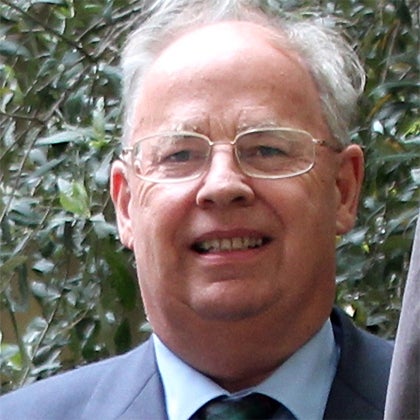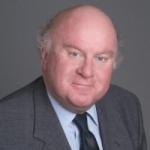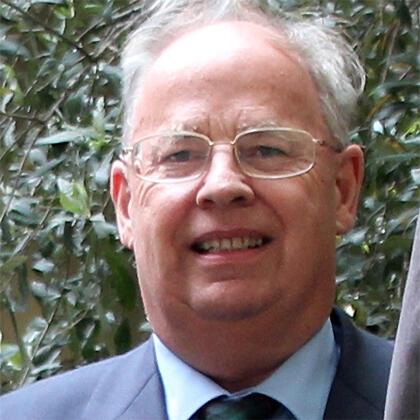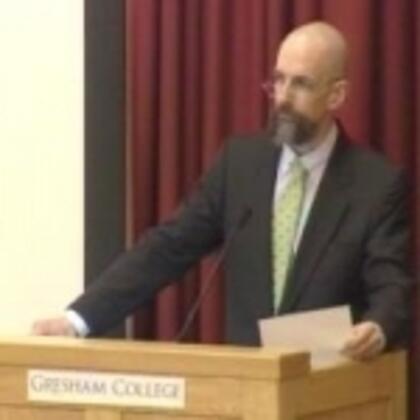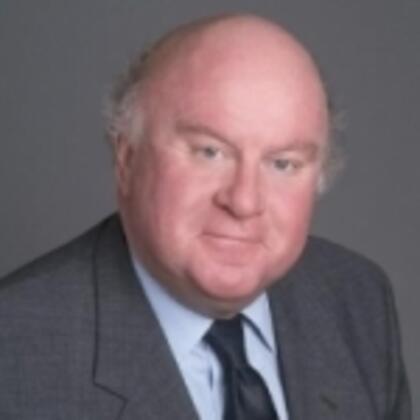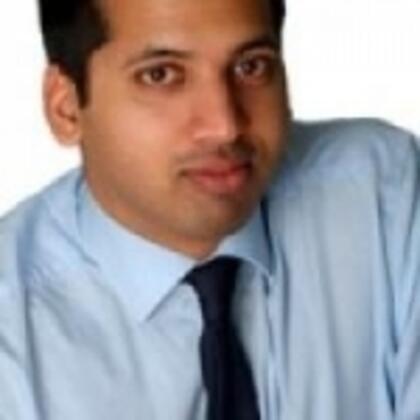Sustainability - The Problem of Time
Share
- Details
- Transcript
- Audio
- Downloads
- Extra Reading
The Long Finance initiative to establish a World Centre of Thinking on Long-Term Finance began in 2007 with a question, "When would we know our financial system is working?" which challenges a system that can't provide today's 20 year olds with a reliable financial retirement structure. The aim of the Long Finance Institute is "to improve society's understanding and use of finance over the long-term." The research project proposals range from theory versus practice or fiscal versus monetary to sustainability versus robustness. The iconic project for Long Finance is the Eternal Coin, with the objective of starting a global debate about society's values over the long-term.
For further information about Long Finance, please visit: www.longfinance.net
Download Transcript
Long Finance Made From Real Money Professor Michael Mainelli 20/9/2010 Ladies and Gentlemen, welcome to Long Finance. As you know, our Long Finance initiative takes Benjamin Franklin's concept that 'time is money' well past its conventional interpretation. We believe that creating a sustainable financial system that is equitable and fair across the globe and through generations requires embedding a long-term perspective in finance, economics and society. My job this afternoon is to tell you a bit about Long Finance so far and our programme today. Long Finance began in 2007. When the credit crunch broke in 2007 we wrote about the religion of regulation and the wicked problems of trying to create good financial markets. Our key question was 'when would we know our financial system is working?' In presentations around Europe and the USA we posed this question to audiences, to clients, to dinner companions. We began to realise that we had broached a fundamental question, 'when would we know our financial system is working?'. Our analysis implied that the credit crunch was a systemic failure with multiple causes and multiple effects. While not decrying many current attempts at reform, we believe that such an important discontinuity requires a holistic rethink and response. And a large group of us, now several hundred, decided to do something. A Kitchen Cabinet came together - people volunteered to develop our thinking - others volunteered to fund some of the publications - some others with the St Andrews Management Institute began a Long Finance Futurists Forum looking at distant scenarios - and now the SWIFT banking network wants to host three Long Finance sessions in Amsterdam next month. Seeking a name, we pondered a project we'd heard about, Long Now, a crazy attempt to build a clock that bonged once every hundred years with the cuckoo coming out once every thousand. Long Now was looking at 10 millennia. We wondered if finance could look forward just one lifetime. What struck us most wonderfully about Long Now was the impertinence of their questions - 'how do you build a clock to last 10,000 years?'. Finance too needs impertinent questions, such as 'when can we fund a forest?' or 'when can a 20-year-old responsibly enter into a financial structure for his or her retirement?' Under reasonable actuarial expectations, that question implies a financial structure that should last 75 to 100 years. We decided to emulate Long Now, hence Long Finance - 'how do you build a financial system to last 100 years?'. The Long Now team are well underway, building their clock in a multi-million dollar programme in the USA. Meanwhile, back in Europe over the past year we've held nearly 20 events, with another 10 already planned for the next six months. We've had two major publications this year, one by David Steven, 'Time To Stop Betting The House', on mortgages, resilience and the long finance, and another by Dr Malcolm Cooper, 'The Eternal Coin', providing a Long Finance view of history. All publications are freely available online. We have two forthcoming publications, one on pensions reform, probably next month, and the other on transforming public-private interactions for the long finance. We've woven in Z/Yen's work on Financial Centre Futures and, today, Global Financial Centres Index 8 has been launched by Long Finance showing the rise of Asian centres and the soft decline in London and New York as Hong Kong joins these two leaders to make a top three. And let's not forget our April Fool's film, Ultrahedge, by Steve McDowell. So Long Finance is booming. Today's conference is about Sustainability: Root Problems in Finance. As we look to the long term, where better to hold such a conference than in the Guildhall. Next year, in 2011, this Guildhall will mark its 600th year, while the crypt below, where we're holding our reception, dates back to Edward the Confessor, 1042 AD. Nearly 1,000 years of history will hopefully help us think 100 years ahead. Today's conference topics grow out of our 1 February conference. Our first panel of Neal Stephenson, Ian Morison and Bob McDowell continues a conversation on Long-Term Thinking And Responsibility In The Framework Of The Next 10,000 Years that Brian Eno, Stewart Brand and Alexander Rose led. Winston Churchill said 'The longer you can look back, the farther you can look forward'. Today I hope our panellists will explore further how much finance can learn from other sectors and science about deep pasts and deep futures, ranging from Jodrell Bank to speculative fiction. Also at our February conference, our Provost Roderick Floud, with Bernard Lietaer and Edward Bonham-Carter, started to debate whether democracy itself might be an impediment to long-term thinking. Today I hope our panellists, Mark Field, Neil Eckert and James Fierro will explore who can take the longer view, democracy or markets. Both panels will be chaired again by Faisal Islam. Just to show that insight is not just eureka scientific moments or artistic insights, we again try to add humour with two interludes by brother Ian Harris of Z/Yen, and Dominic Tayler and Ned Naylor-Leyland of Cheviot. Our keynote speech is by Avi Persaud, on the problem of time. Avi is well-known to all of us as Gresham Professor Emeritus of Commerce, but also as a Member of the UN Commission of Experts on International Financial Reform and Chairman of the Second Warwick Commission. Our panellists have come from afar, two from North America, two from offshore, and two from Manchester. You can order those distances as you please, as today is about your own definition of long. So, as we say in Commerce, 'To business'. Money as a medium to exchange value across space and time cuts to the heart of what our society values. An equitable society requires fair exchange globally and with future generations. A sustainable society requires us to treasure scarce resources in an increasingly crowded planet. If you don't value it, you won't sustain it. The iconic focus of Long Finance, comparable to the Clock of The Long Now, is the paradoxical concept of Enduring Value and, thanks to speculative fiction author Neal Stephenson's push for something physical, The Eternal Coin. The Eternal Coin is a thought experiment that speculates on whether a coin that never loses value could exist and, if such a coin could exist, how might it be constructed. Value is, of course, intrinsically tied to future exchange, calls on future wealth. The logos are based around a Möbius strip - the coin you can't flip because it has one side. The coin's motto is 'Real Money, Made From Eternal Coins' and 'Eternal Coins, Made From Real Money'. Of course a Möbius strip is also without end, an endless conveyor belt of values from the past to the future. Our research programme includes our work on financial centre futures, plus our Eternal Coin project, plus the idea of meta-commerce. In 1900 David Hilbert assembled leading mathematicians in Paris to set out a successful roadmap for the 23 big math problems. His meta-mathematics roadmap resulted in 17 of the problems being solved so far. Emulating David Hilbert's successful approach, we're hosting meta-commerce discussions, creating a roadmap for commerce and finance research. We have mapped out eight themes for research. As well as reports or software, each theme should produce Eternal Coins, for example the sustainability team might issue 'peak' - a basket currency weighted by the remaining life of key resources. • To get so many busy people here for even this brief discussion has been a tremendous effort. Danny Hillis proposes a Golden Rule of Time: 'Do for the future what you're grateful the past did for you.' So, grateful for past support and in anticipation of future aid, thanks are first due to the Kitchen Cabinet members who keep this show moving forward. Second, I'm immensely grateful to all our sponsors whose selfless generosity made this event a delight to organise: • Alpheus for publication funding - read them! • Centre for the Study of Financial Innovation; • City of London Corporation, particularly Simon Mills, for help in many many areas; • Culliford Edmunds Associates for hospitality; • Financial Services Club; • iBall TV for production; • London Accord; • Sedgwick Richardson and Tattarsall Hammarling & Silk for graphics; • St Andrews Management Institute for this morning's workshop on scenarios; • Steve Cunliffe for music; • Tomorrow's Company; • UKSIF - the Sustainable Investment and Finance Association; • and of course the City of London Corporation for our fantastic venue. The City of London Corporation has gone to extraordinary efforts to help host and support this event, ever seeking to make London the home of true debate about the future of finance. The Gresham College team led by Barbara Anderson, the Z/Yen team led by Linda Cook and Stephanie Rochford, and the Chartered Institute of Securities & Investment team led by Ged O'Mara, should take immense credit for their extraordinarily conscientious organisation. Finally, we owe tremendous thanks to our presenters and panellists, many of whom came from afar. We must thank them for preparing so well and giving us so much to think about - Avi Persaud, Neal Stephenson, Ian Morison, Bob McDowell, Ian Harris, Mark Field, Neil Eckert, James Fierro, Dominic Tayler, Ned Naylor-Leyland, as well as Faisal Islam for moderating so masterfully. Many people committed to making today a success. If you want to get committed to Long Finance, yes do join the online community, yes we are seeking funding for the three core projects and the eight themes. Please feel free to see me or talk to the Kitchen Cabinet members. Like Sir Thomas Gresham in Tudor days with New Learning, or Gresham College's progeny The Royal Society and its Natural Philosophy, we believe in an inquiring approach. To paraphrase William Blake crudely: To see the World in a 'piece of eight', And Heaven in a wild value, Hold Infinity in your palm, contemplate, Hear Eternity in an hour. Hopefully you didn't feel that a picosecond of long finance is an hour in real life. Once you view society through the lens of Long Finance, you realise that many of today's sustainability issues arise because society's core risk/reward transfer system, finance, isn't yet capable of handling long-term risk/reward transfers. Let's work to make sure that we can know when our financial system is working. Meanwhile let's all keep asking uncomfortable, impertinent questions. Thank you.
This event was on Mon, 20 Sep 2010
Support Gresham
Gresham College has offered an outstanding education to the public free of charge for over 400 years. Today, Gresham plays an important role in fostering a love of learning and a greater understanding of ourselves and the world around us. Your donation will help to widen our reach and to broaden our audience, allowing more people to benefit from a high-quality education from some of the brightest minds.


 Login
Login
